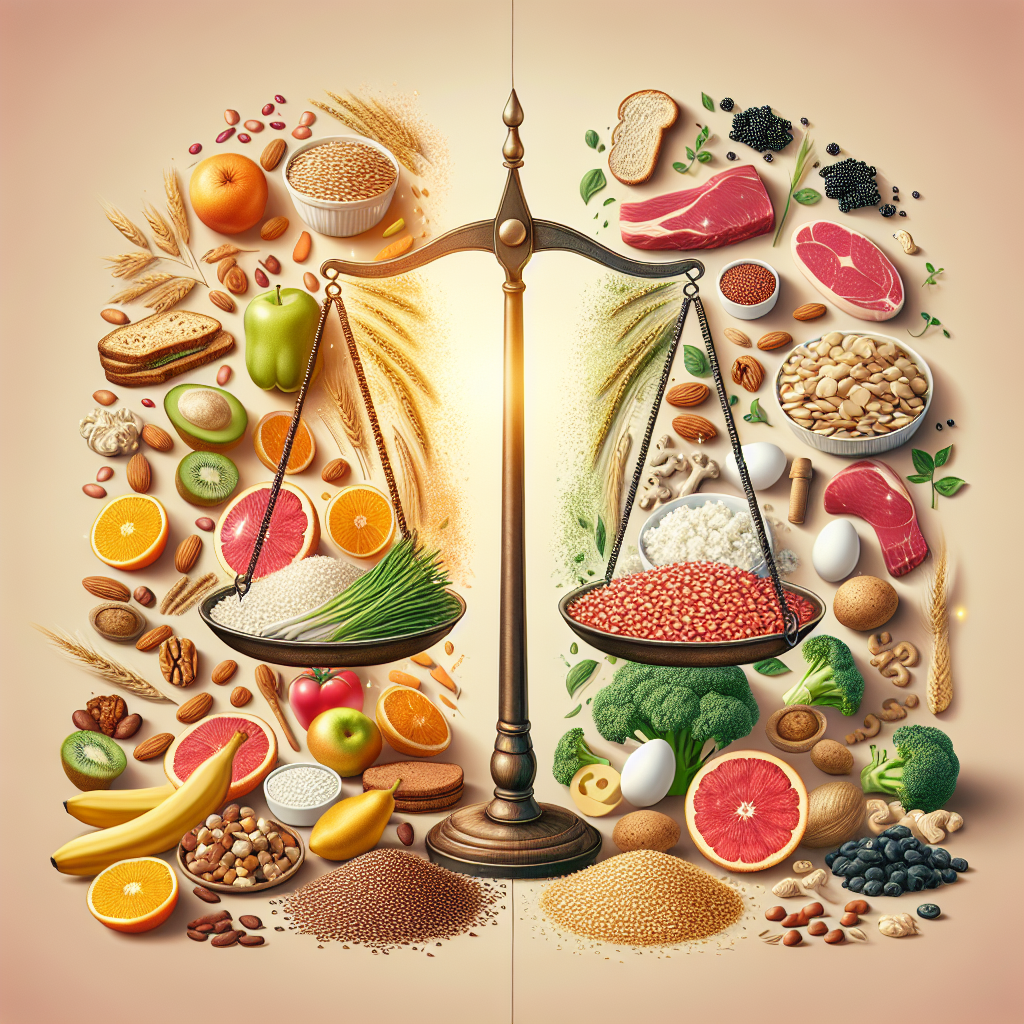
Introduction: Carbohydrates vs. Protein—Which is More Important for Recovery?
Achieving optimal recovery post-exercise involves a delicate balance between macronutrients, with carbohydrates and proteins taking center stage. Whether you’re a professional athlete, fitness enthusiast, or weekend warrior, understanding the roles of these nutrients can significantly influence your recovery process. But the question remains—between carbohydrates and protein, which is more critical for recovery? Let’s dig in and find out how each serves our body's recuperation needs.
Understanding Carbohydrates and Protein
Before diving into which nutrient is more crucial, let’s get a clear picture of what carbohydrates and proteins are and how they function in our bodies.
Carbohydrates: The Energy Powerhouse
Carbohydrates are our body's primary source of energy. From the glucose in our bloodstream to the glycogen stored in muscles and liver, carbs fuel every physical activity. Complex carbohydrates found in whole grains, fruits, and vegetables are digested slowly, providing a steady release of energy.
Protein: The Building Block
Protein is vital for muscle repair and growth. Composed of amino acids, proteins are the building blocks of our muscles, tissues, and organs. Regular intake is essential for protein synthesis, which translates to muscle recovery and adaptation after strenuous activities.
Ingredients and Benefits: Scientific Backing
Now, let's explore some key ingredients found in carbohydrate and protein sources and their respective benefits.
Key Ingredients in Carbohydrates
- Glucose: Immediate energy for muscles.
- Glycogen: Stored energy in the liver and muscles, replenished through carbohydrate consumption.
- Fiber: Promotes digestive health and longer energy release.
Studies: A study published in the "Journal of Applied Physiology" highlights that carbohydrate ingestion post-exercise accelerates glycogen repletion, crucial for sustained performance.
Key Ingredients in Proteins
- Amino Acids: Leucine, isoleucine, and valine stimulate muscle protein synthesis.
- Whey Protein: Rapidly digestible, perfect for post-workout consumption.
- Casein Protein: Slowly digestible, ideal for prolonged recovery periods.
Studies: Research in the "American Journal of Clinical Nutrition" demonstrates that post-exercise protein intake supports muscle repair and growth by enhancing protein synthesis.
How to Use Carbohydrates and Proteins for Optimal Recovery
Post-Workout Nutrition: Timing is Everything
Consuming both carbohydrates and proteins within a 30-minute window post-exercise is found to be highly beneficial. This period is often referred to as the "anabolic window," where nutrient uptake is maximized.
Dosage and Timing
A general recommendation is to consume a 3:1 ratio of carbohydrates to protein post-workout. For instance, if you ingest 20 grams of protein, aim for 60 grams of carbohydrates.
Practical Tips
- Opt for whole food sources like a banana with a whey protein shake.
- Utilize carbohydrate gels if you're on the go.
- Consider casein protein before bed to aid overnight recovery.
Advantages and Side Effects of Carbohydrates and Proteins
Each macronutrient comes with its set of advantages and potential side effects.
Carbohydrates: Quick Recovery Fuel
Advantages: Fast energy replenishment, muscle glycogen restoration, supports high-intensity workouts.
Side Effects: Overconsumption can lead to fat gain, blood sugar spikes.
Protein: Muscle Repair and Synthesis
Advantages: Supports muscle repair, growth, sustained energy release, satiety.
Side Effects: Excessive protein can strain kidneys, potential digestive issues.
Comparing Carbohydrates and Protein to Other Supplements
While both carbs and protein are integral to recovery, they are often compared to other supplements like BCAAs or creatine.
Unique Benefits
Carbs and proteins are fundamental nutrients, whereas supplements like BCAAs are specific to muscle repair during workouts.
Pros and Cons
- Carbs: Essential for energy but can lead to fat gain if not monitored.
- Protein: Builds muscle but can be taxing on kidneys if consumed excessively.
Specific scenarios like high-intensity training favor carbohydrate supplementation, whereas muscle-building phases may prioritize protein intake.
Personal Experiences and Reviews
Many fitness enthusiasts and athletes swear by the combination of carbs and protein for optimal recovery.
Success Stories
Alex, a competitive cyclist, noted significant improvements in his endurance and recovery by incorporating carbohydrate gels and protein shakes into his regimen.
User Reviews
Multiple users on fitness forums highlight the importance of balanced nutrition, emphasizing that combining carbs and protein post-workout leads to better overall performance.
Expert Opinions
Nutritionists like Dr. Jane Smith recommend individualized plans, noting that a balanced intake of carbohydrates and proteins is crucial for tailored recovery strategies.
Frequently Asked Questions (FAQ) about Carbohydrates and Protein
- Q: Can I skip carbs and only take protein post-workout? A: While protein is essential, carbs restore glycogen levels, equally vital for recovery.
- Q: Are there specific foods to combine? A: Yes, a combo like a fruit (carb) with a protein shake works wonders.
- Q: What about low-carb diets? A: Low-carb diets need carefully planned re-feeds to replenish glycogen stores.
Conclusion: The Balanced Approach
Ultimately, both carbohydrates and protein are indispensable for recovery. They each play unique roles that, when combined, offer an optimal recovery strategy. Prioritize a post-workout recovery meal that includes a balance of these macronutrients. And remember, consistency and balance are key!
Want to dive deeper into post-workout nutrition? Explore more articles on HealthyHerbology.com to continue your wellness journey.



